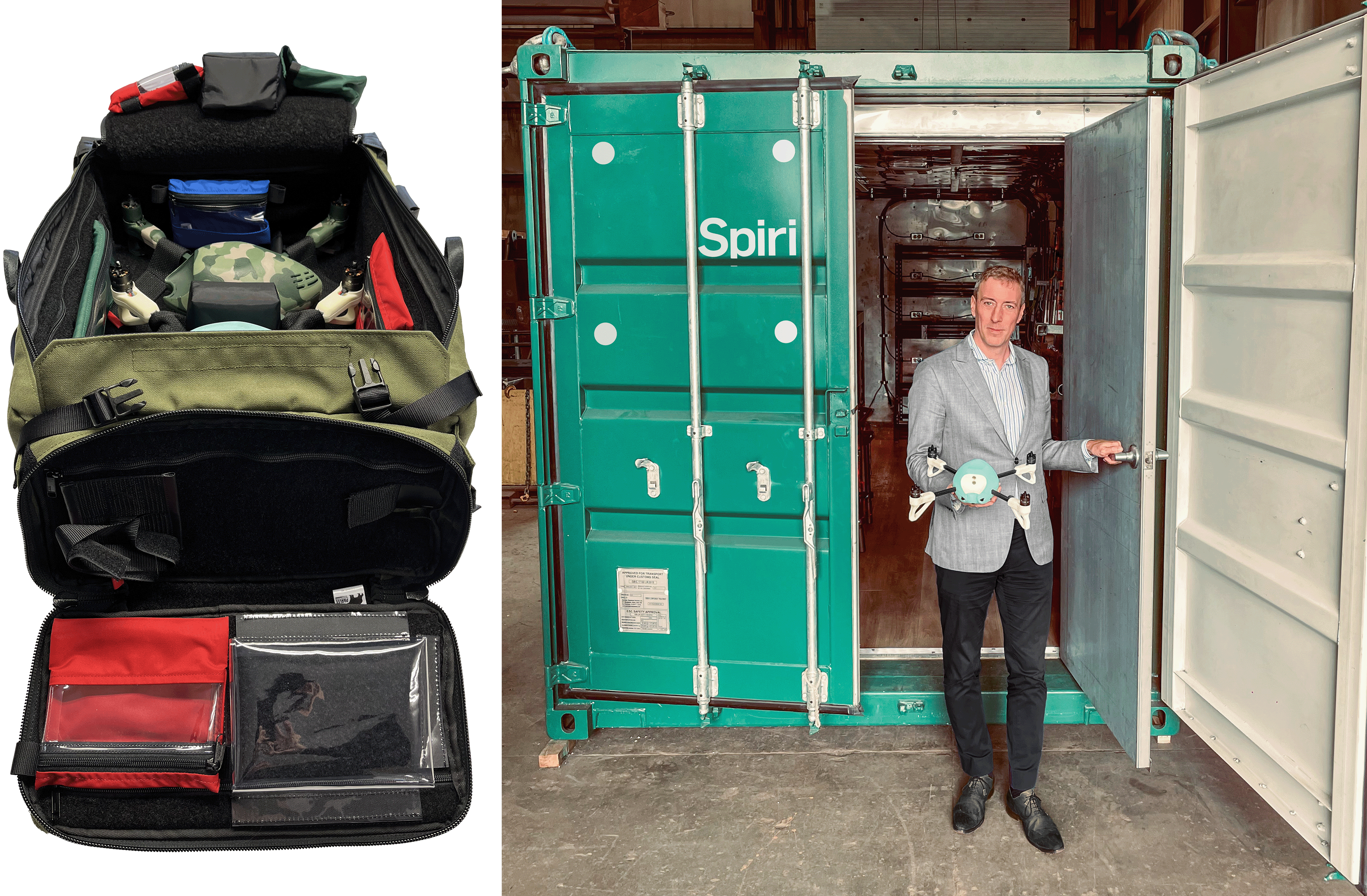
Published on: October 2, 2024
Spiri Robotics has announced four new or updated products at the Defence Security and Aerospace Exhibition (DEFSEC) in Halifax, Nova Scotia, where the company is exhibiting. These are described as featured products in its 2025 product line. Information made public today is provided below.
The Autonomous Robotic Cell (ARC), which has been in validation tests with the Departments of National Defence and of Public Safety, is going into production. An ARC is an integrated system of autonomous robots, sensor networks, software, computational and command & communications systems. It comes in the form of a self-enclosed intermodal shipping container and iis equipped and programmed to provide one or more discreet, stackable capabilities.
The 2025 model Spiri Mu represents the next generation of this product with significant improvements in payload capacity, computational power, and modularity. It is a small unmanned aerial system (UAS or drone) about the size of a football and weighing less than 2.5 kg. The Mu provides for software, hardware, and payload extensibility through Spiri’s open APIs and interfaces. A user can configure it for ranges up to 30 km and payloads up to 7 kg while its 100 TOPS onboard computer enables fully autonomous flight through GNSS-denied areas and a variety of artificial intelligence capabilities.
The new Spiri mission backpack, designed in collaboration with Parlee Manufacturing, carries two Mu drones and allows for their remote configuration while in transit. It is light but rugged and water resistant. Interior inserts and exterior connection points support carrying a variety of devices and payloads. While packed safely away, a Mu remains powered and able to receive mission and configuration downloads without returning a transmission.
The first release of Spiri's software development kit (SDK) is now available and free. It is a convenient, open and transparent tool for robotics innovators and end users. It enables the packing of new artificial intelligence and other software capabilities onto any robot running a Spiri compatible framework. The SDK supports both simulation and onboard use and ensures that multiple, simultaneous software modules do not collide in service.
Updated on: October 3, 2024